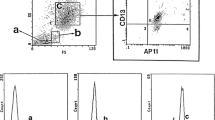Abstract
Murine monoclonal antibody A33 (mA33) was developed by the Memorial Sloan-Kettering Cancer Center and by the New York Branch of the Ludwig Institute for Cancer Research. It is an immunoglobulin (Ig)G2a antibody that detects a protease- and neuraminidase-resistant, periodate-sensitive epitope. Serological analysis of the antigen showed that it is expressed in a few colorectal cancer cell lines and a pancreatic cancer cell line, but is basically not reactive with other types of cell line. Normal fibroblasts and normal kidney cell lines reacted negatively to mA33. Immunohistochemical study of normal tissues identified the large and small intestinal mucosa as the principal site of A33 expression. Tests in tumor samples demonstrated that only tumors of the gastrointestinal tract are consistently A33 positive. A33 is found in 95% of primary and metastatic colorectal cancers, with uniform expression throughout the tumors in most cases. A33 is also detected in 63% of gastric cancers, with uniform expression in 45% of cases. Eighty-three percent of intestinal-type gastric cancers were positive for A33, and about 50% of the diffuse-type and mucinous cancers were mA33 positive. A33 was expressed in 50% of the pancreatic cancers but with marked heterogeneity. Other epithelial cancers, sarcomas, neuroectodermal tumors, and lymphoid neoplasms were generally A33 negative. A33 is the first example of a constitutively expressed, organ-specific epithelial membrane antigen permitting highly specific tumor targeting in patients with gastrointestinal cancer. Encouraged by the success of the biodistribution and imaging characteristic studies performed at Memorial Sloan-Kettering Cancer Center by the New York Branch of the Ludwig Institute in colorectal cancers, a new clinical study of humanized monoclonal antibody huA33 against A33 antigen-positive gastric cancers has been initiated in Japan.
Similar content being viewed by others
Author information
Authors and Affiliations
Rights and permissions
About this article
Cite this article
Sakamoto, J., Kojima, H., Kato, J. et al. Organ-specific expression of the intestinal epithelium-related antigen A33, a cell surface target for antibody-based imaging and treatment in gastrointestinal cancer. Cancer Chemother Pharmacol 46 (Suppl 1), S27–S32 (2000). https://doi.org/10.1007/PL00014045
Issue Date:
DOI: https://doi.org/10.1007/PL00014045




